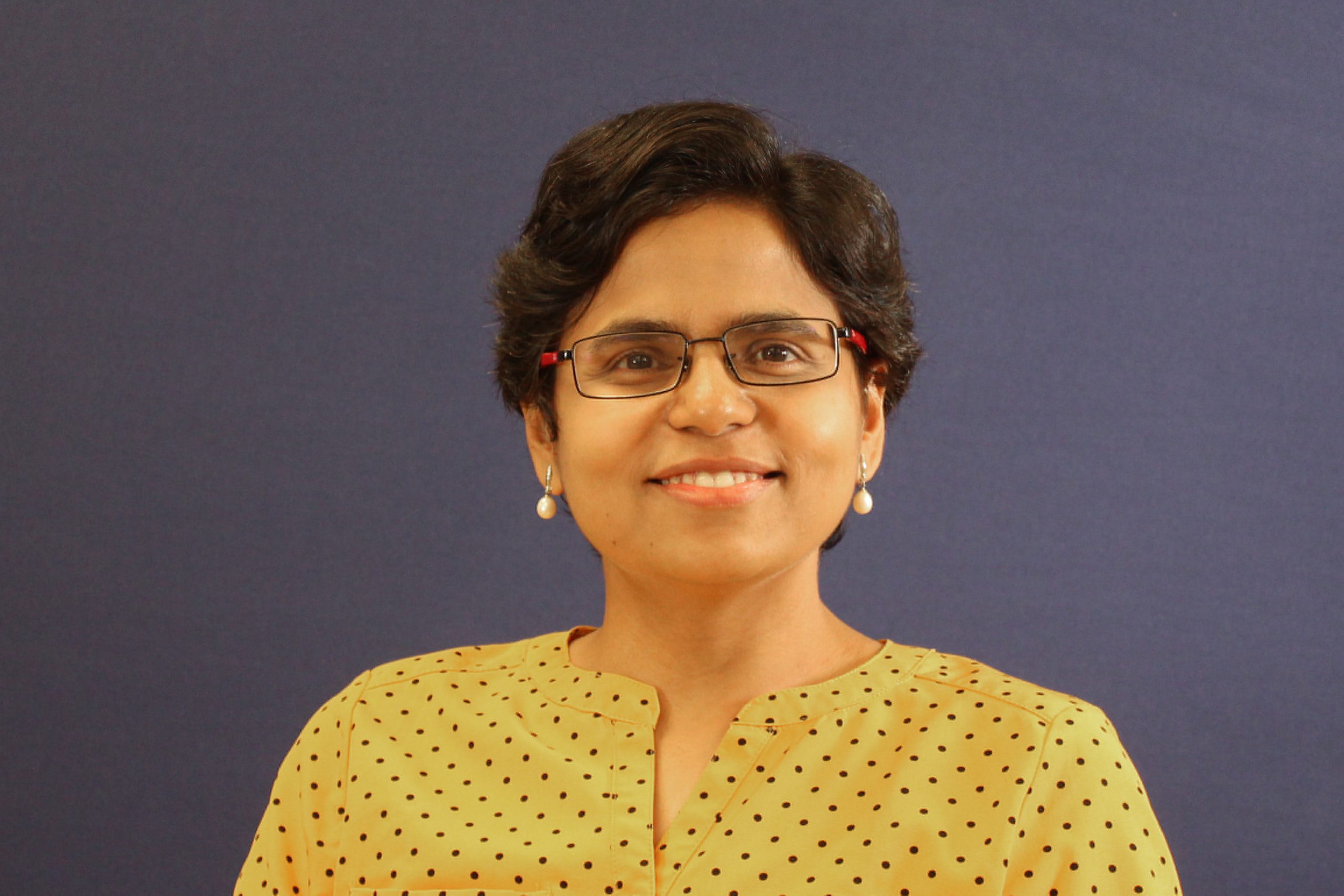Background
Sudha Srinivasan PhD, is an Assistant Professor in the Physical Therapy program within the Department of Kinesiology in the UConn College of Agriculture Health and Natural Resources.. The overall goal of her research is to (1) improve early identification of children at risk for developmental disabilities and (2) develop novel interventions, assistive technologies and aids that can improve functioning and participation of infants, children, and youth with developmental disabilities. Her research is driven by her 15 years of clinical experience as a pediatric physical therapist. Srinivasan earned her Master’s degree in physical therapy with a specialization in neuroscience from India. She first worked as a pediatric physical therapist in private practice, but yearned for innovative interventions outside of conventional therapies. “I wanted to meaningfully engage patients and help them achieve their maximal potential and promote community integration and participation,” says Srinivasan. She specifically was intrigued by the challenges faced by children with autism and wanted to learn more about ways to engage and care for children on the spectrum.
With a desire to broaden her perspective, Srinivasan pursued her PhD in Kinesiology at UConn on an NIH-funded study that assessed the effects of two types of novel movement-based interventions, namely, rhythm and robotic therapies in children with autism. During her doctoral work, she also worked on another NICHD-funded project that aimed at identifying early signs of risk within the first year in infant siblings of children with autism (who are at high risk of receiving an autism diagnosis). Srinivasan later completed a post-doctoral research position in an interdisciplinary setting at the Indian Institute of Technology in the design school. She—along with a team of designers, engineers, software programmers, and healthcare providers—used UNICEF funding to develop “augmentative and alternative communication (AAC) tools for children with communication disabilities.” The team’s collaborative efforts in assistive technology led to the development of an open-source, child-friendly, socio-culturally sensitive AAC system called Jellow Communicator, which allows non-verbal and minimally verbal children with developmental disabilities to communicate their desires by touching icons that emit sound.
Currently, Srinivasan is working on three projects. “I want to bring play and movement to the forefront for children with developmental disabilities. Playful movement-based interventions that promote exploration of children’s physical and social environment have implications for multisystem development in children with developmental disabilities,” says Srinivasan.
- The first project is an extension of her doctoral work and assesses the effects of creative movement and play-based interventions in school age children with Autism Spectrum Disorder. The multi-site randomized controlled trial compares the effects of two types of whole-body movement-based interventions to a standard-of-care seated play intervention in children with autism.
- Her second project is another playful intervention that explores the use of modified, commercially available, joystick-operated ride-on-toys as fun and motivating adjuncts to encourage use of the affected arm in children with hemiplegic cerebral palsy.
- Her third project focuses on identifying factors that influence engagement in physical activity in youth with developmental disabilities and developing interventions to improve physical activity and fitness in youth with disabilities 21 years and older as youth transition out of school in order to reduce the risk of obesity and other cardiovascular comorbidities.
Involvement with CSCH
Srinivasan joined CSCH after realizing that the group’s focus on children and school health aligned perfectly with her work. The Whole School, Whole Community, Whole Child (WSCC) model’s holistic analysis of the child, especially the physical health and movement skills components, resonated with Srinivasan. “It’s important for children to be engaged with their surrounding physical and social world,” says Srinivasan.
The best way to learn more about her work is by visiting her website. She can also be contacted through email and LinkedIn.
Fun Facts
Srinivasan likes to travel and watch thriller and mystery movies with her husband. She also likes to read, listen to music, drink coffee, and spend time with loved ones to relax.
Undergraduate Researcher Angel Ojide interviewed Dr. Srinivasan and wrote this profile.
